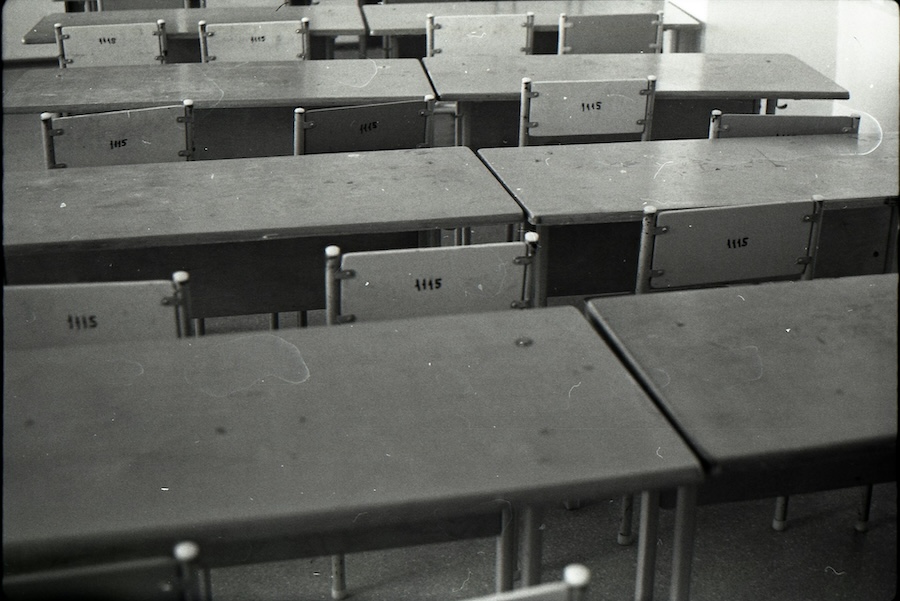After 35 years, the planned economy system is returning to Russian higher education.
Dmitry Dubrovsky
Photo: Under Stalin, failure to appear at your assigned place of work after graduation was considered truancy and was punishable under the criminal code. Photo by David Shoykhet on Unsplash
Continuity of Academic Autonomy
Academic rights and freedoms for students presuppose the right to determine their own educational and professional path. In a sense, choosing a place of work after receiving higher education is a way to exercise this right.
Any attempt to forcibly assign students to jobs is not only a violation of these rights, but also a significant violation of the principle of continuity of academic autonomy. This principle is based on the logic of the continuity of the application of academic freedom. It starts with a student’s choice of university and extends to their choice of job after graduation, to apply the knowledge and skills acquired at university.
Mandatory Post-Graduate Work Contracts
In the distant past: In the Middle Ages and the modern era, the existence of compulsory work contracts was connected to the fact that universities were directly financed by the church—as in Europe—or the empire—as in Qing China or Imperial Russia. Graduates were obliged to serve wherever the church or the sovereign sent them.
In 19th-century Prussia and Germany, graduates who had studied at the public’s expense were required to sign a contract for several years of service. In Britain, students who received state scholarships for their studies were required to serve in the colonies.
In the USSR: In the 1920s, the Soviet Union began practicing mandatory job placement for graduates. Those who graduated from higher educational institutions were assigned and sent to workplaces by the orders of the State Planning Committee.
This was introduced in the fields of medicine and engineering in the 1920s. By the late 1930s, it had become mandatory for everyone.
Before Stalin’s death, failure to show up to one’s mandatory place of work after graduation was considered truancy and was punishable under the criminal code. During the Khrushchev era, measures became less stringent—graduates were issued their diploma after working it off for only three years.
After Khrushchev’s resignation, this requirement was abolished. This led to an increase in the number of graduates who never made it to their assigned workplace or found jobs not assigned to them by special university committees. However, there were few evaders: the risk of being left without a job and being convicted of “parasitism” was high.
At the same time, there were also so-called “contract students”—those who knew from the very beginning where they would be assigned to work after completing their studies, as this was indicated in their scholarship contract. This system was introduced in response to the labor force crisis, especially in the national republics and remote regions of the USSR.
This involved special admission quotas to educational institutions that were outside of the general admissions and dictated a certain minimum number of contract students. In return, the student was required to work for 3–5 years at a predetermined place of work. Refusal to do so could entail an obligation to reimburse the full cost of tuition, which was often a significant sum.
Pros and Cons
On one hand, this system made it possible to partially solve the problem of personnel shortages in underdeveloped regions of the USSR.
On the other, it significantly lowered the educational level and quality of graduates, since it imposed significantly lower requirements for contract students than the general population.
At the same time, the high quotas for contract students (in some disciplines up to 30-40 percent of the total intake) made admissions much more difficult for “regular” students. With the number of available spots almost halved, competition grew extra fierce.
Both mandatory job assignments and education contracts had numerous loopholes that allowed them to be successfully circumvented, especially if one had corrupt connections or other influence.
At the same time, the job assignment itself became a convenient instrument of political repression—for example, with regard to the Jewish population, who were assigned jobs as far away from the center as possible. All kinds of academic dissidents (if they even lived to be assigned a job) were also conveniently sent far away for their “less than enthusiastic way of thinking.” This turned the practice of the Soviet planned economy into a form of political repression.
“Not a Violation of Freedom, but an Advantage”
The official stance of the USSR was as follows: a planned economy requires planned training of specialists, and job assignment is not a violation of freedom, but an advantage of the Soviet system, along with free education, since no specialist is left without work.
They were advised to lie about the sanctions imposed on violators, alleging that such sanctions did not exist.
Contract Recruitment in the New Russia
After the collapse of the USSR, admissions of contract students continued, but often turned into a hidden way to collect money for education. Disintegrating enterprises pretended to pay for the education of contract students while taking payments from their parents.
Nevertheless, in a number of cases, due to chronic budget deficits, smaller projects existed to fill personnel shortages in the most severely affected areas, primarily in medicine and economics.
In 1995, a new Russian resolution was adopted that legitimized recruitment through contract students. At that time, the discussion was about employers headhunting students of interest and providing scholarships in exchange for a commitment to working for their company for a period of three years. This was formalized as two contracts: one between the student and the educational institution, the other between the student and the future employer.
As a result, two systems operated in parallel within universities:
- contract admission via separate competition (in which certain quotas are allocated)
- targeted contract training of students
In 2000–10, such employers included, for example, Gazprom Neft, Rosneft, Lukoil, Norilsk Nickel, Russian Railways, and Rusal. The programs these donors offered included corporate scholarships, internships, and employment for graduates.
Thus, according to statistics from 2006, Lukoil recruited up to 500 university graduates under contract programs and more than 1,500 students completed internships. Since 2000, personal corporate scholarships have been paid.
In 2002, a clause appeared concerning the possibilities of targeted contract recruitment to ensure personnel numbers in state authorities and municipal government institutions. At the same time, the universities independently held competitions and enrolled applicants for additional spots that were funded through local or regional budgets.
The Path to Public Procurement
However, by the mid-2010s, the course was set toward stricter formalization and state control of this system.
In 2013, amendments to the Law on Higher Education were adopted. Article 56 “on targeted recruitment” established the rules for this kind of recruitment, as well as sanctions for failure to comply with its conditions, including possible impact on academic activities. The market nature of targeted recruitment began to noticeably decrease, replaced by increasingly familiar “public procurement.”
At the same time, 2018 saw the first proposals for a nationwide return to the graduate job assignment system. In 2023, Tatarstan proposed to revive a similar practice. Essentially, they advocated a return to the Soviet distribution system, which, according to legislators, allows “guaranteed provision of young specialists with work in accordance with the qualifications received for a period of at least three years after completion of training, which, in turn, will contribute to the staffing of enterprises of the military-industrial complex [hereinafter MIC] and priority sectors of the economy of our country.”
At that time, this legislative initiative did not find support from the government. However, at the beginning of 2025, the situation changed.
Work Assignment 2025
Thus, Deputy Prime Minister Dmitry Chernyshenko proposed a “soft option” for work assignment, which is the possibility to choose between several employment options.
This February, the Ministry of Health proposed introducing a regulation requiring medical students to work for 2-3 years after their degree, depending on their level of education.
Although the proposal for mandatory service has not yet been implemented, a new bill passed in May 2025 appears to be an additional step to ensure the future of mandatory work assignment.
The law “On Amendments to Article 55 of the Law on Education in the Russian Federation,” signed on May 23, brings private education—as opposed to state-funded education—completely under the control of the state authorities. Now, the size and volume of paid admission spots are regulated “to the extent determined by the Government of the Russian Federation, taking into account the needs of the economy for qualified personnel and industry specifics.”
* * *
The adoption of this law means not only an additional reduction in students’ scope to choose a professional track, but also a full-fledged return of the planned economy to the higher education system. Now bureaucrats will decide how many students in what specialties are needed.
That being said, it is quite easy to imagine the reasoning behind such a decision. We are talking about a significant reduction in the humanities and social sciences, with active promotion of specialties aimed at achieving “technological sovereignty” and the military industry. Such restrictions simplify the introduction of mandatory work assignment in the future.
In addition, such a model creates serious risks for the academic autonomy of universities, effectively subordinating their personnel and educational policies to the current political priorities of the state.
This leads to a reduction in the diversification of educational programs, the marginalization of interdisciplinary research, and a loss of flexibility in the system in response to changes in the global labor market.
In the long term, such centralization exacerbates “brain drain,” since the most mobile and in-demand specialists will tend to move to countries where a significant level of academic freedom remains.
Moreover, focusing on a narrow set of “priority” areas reduces the innovative potential of society as a whole, since it ignores the competence in the humanitarian, social, and cultural spheres that is critical for sustainable development.





0 Comments